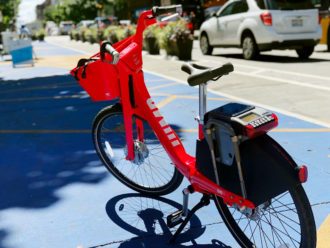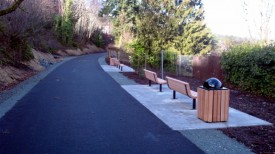
Cascade Bicycle Club is transforming its excellent Advocacy Leadership Institute into an online training course. So if you want to learn more about how to be a bike advocate, organize a campaign or tell your personal story, this could be a great fit. I mean, you’re not going anywhere anyway, right?
It’s a six-week course that starts April 21, and because it is online it is open to anyone in Washington State. That’s one advantage of holding it online rather than in-person. The deadline to apply is April 10, just fill out this form. Oh, and it’s free.
While our first responders, hospital workers, and others are on the front lines of COVID-19, many of us are rightfully obeying ‘stay home, stay healthy’ orders during these unprecedented times. That is why here at Cascade we are rethinking our community gatherings, trainings, and community building.
After eight years of sharing our Advocacy Leadership Institute (ALI) trainings in person, we’re excited to announce that we’re going virtual. The good news – that means ALI is now open to Cascade advocates across the state!
During our virtual six week ALI series, we’re sharing the same great content – including tools on how to develop your own unique story and plan an advocacy campaign. We’re also bringing together speakers to share their work and discuss how we continue working with others. You will hear from news reporters, other advocates, and elected officials on how to best make an impact – and help advance the issue that you care about most.
If you care about bicycling and want to be a more effective organizer in your community, or are interested in learning how to mobilize your neighbors to stand behind important bicycling projects that will make our streets great places to ride, please join us for the virtual Advocacy Leadership Institute program during April-June 2020.










